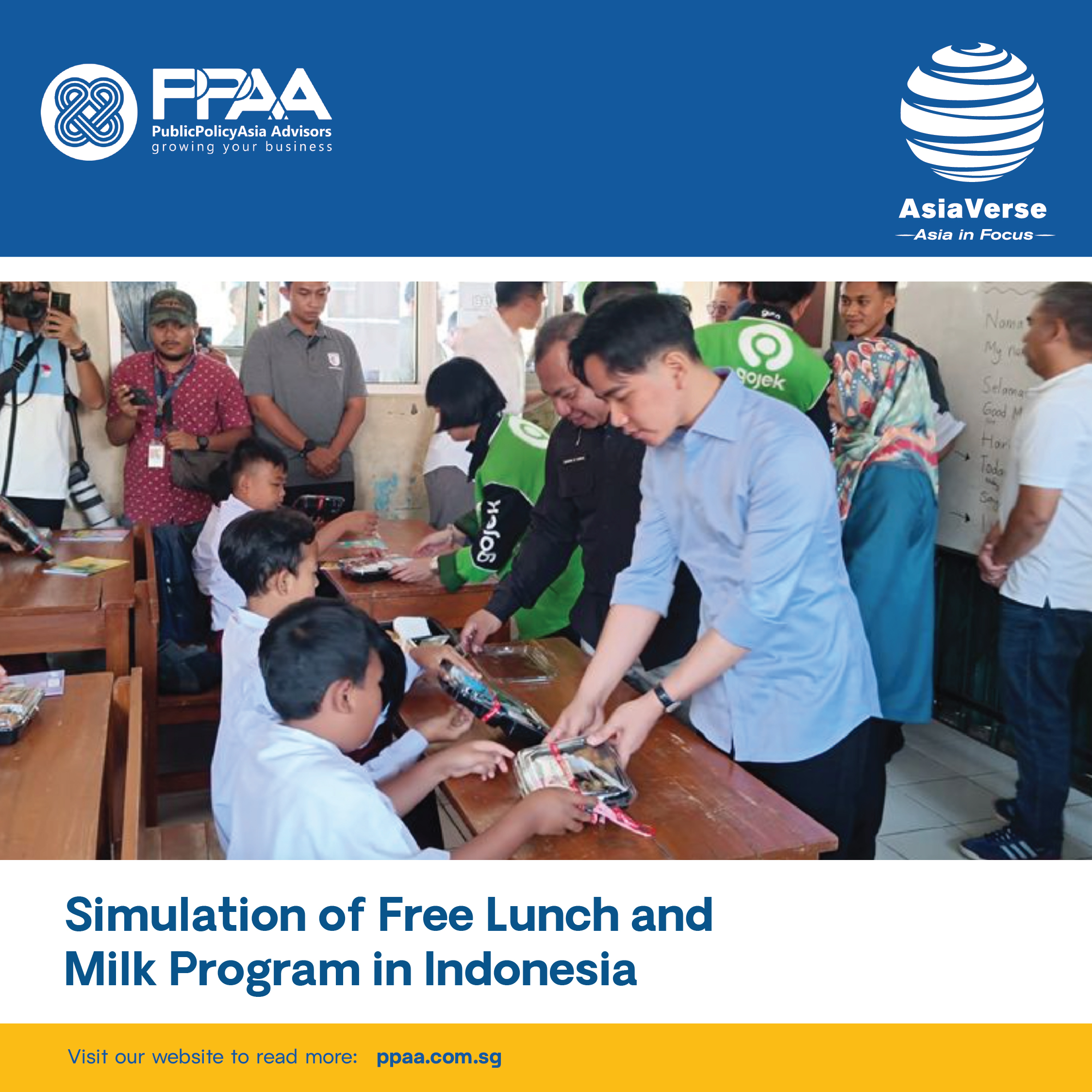In preparation for his upcoming role as Vice President of Indonesia, Gibran Rakabuming Raka recently resigned from his position as Mayor of Surakarta and initiated a simulation of the Free Lunch and Milk program. The program was first implemented at two elementary schools in Sentul, West Java, on July 23, 2024, and subsequently in Surakarta from July 24-26, 2024. These simulations aim to gather data and identify potential obstacles that could hinder the program’s implementation. Each food package, budgeted at Rp 14,900 (less than USD 1), included a variety of nutritious meals such as rice, fried chicken, vegetables, a banana, and milk. The program’s budget constraints are carefully managed to ensure the quality and quantity of food provided are not compromised. Following these initial trials, the simulation is set to expand to other towns, including Depok and Surabaya, with evaluations by nutrition experts, the private sector, and local governments to ensure thorough preparation for the program’s official launch.
Support and Partnerships
The Free Lunch and Milk program simulation has garnered significant support from various sectors, underscoring the importance of local support and partnerships in the program's success. Notable companies such as GoTo and TikTok Indonesia, along with the Organization of President Joko Widodo’s political volunteers, Projo, have shown their support. In addition to Gibran’s simulations, other trials are being conducted by the Coordinating Minister for Economic Affairs, Airlangga Hartarto, and the Indonesia Food Security Review (ISFR). Minister Hartarto’s simulation took place on February 29, 2024, at a junior high school in Tangerang, Banten Province, with a budget of Rp 15,000 per food package. The ISFR, in partnership with the Bandung government, is conducting a series of simulations from July to September 2024, covering six elementary schools and preparing 2,500 food packages over three months. The National Food Agency (NFA) has also contributed by providing eggs, milk, chicken, and fish to 25,000 elementary students over two months and offering educational programs on the importance of nutrition.
Comparative Analysis and Suggested Enhancements
To provide a robust evaluation of Indonesia’s Free Lunch and Milk program, it is beneficial to consider similar programs in other countries, such as India’s Mid-Day Meal Scheme and Brazil’s National School Feeding Program. India’s Mid-Day Meal Scheme aims to improve children’s nutritional status and encourage school attendance, with a budget of approximately USD 0.2 per meal. The diverse menu includes rice, lentils, vegetables, and sometimes eggs or milk, resulting in increased school enrolment and improved nutritional status. Brazil’s National School Feeding Program, with a budget of approximately USD 0.3-0.5 per meal, focuses on providing nutritious meals to students and supporting local agriculture. The program has enhanced student health, improved educational outcomes, and supported local farmers.
For Indonesia’s program, suggested enhancements include incorporating locally grown ingredients to support local farmers and reduce costs, ensuring a variety of food items to cater to different dietary needs and preferences, and rotating menus periodically to maintain student interest and nutritional balance. Implementing educational sessions about nutrition and healthy eating habits, partnering with nutritionists, regularly collecting data on student health and performance, establishing robust feedback mechanisms to ensure continuous improvement, encouraging community volunteer programs, and strengthening corporate partnerships are also recommended. Starting with pilot programs in different regions to test various strategies and scale successful models is crucial for the program’s adaptability and success.
Download PPAA's full AsiaVerse report here for detailed insights and comprehensive recommendations.

